The African Cypher (South Africa)
Directed by Bryan Little
* TOP PICK *
Films like The African Cypher showcase what is so great about festivals like SIFF. This documentary takes a long, sweeping look at the different street dance styles across South Africa, where dancing isn’t just something people to do for fun, but something people to do to live. Director Bryan Little takes a backseat and lets his story tell itself through captivating dance sequences and enlightening interviews, as his subjects go from the confines of their neighborhoods to compete with the best at the “Big Dance Competition”. Although The African Cypher‘s run has already passed at SIFF, mark it down as a film to place on hold at the library in the near future — if anything, for the jaw-dropping dance sequences Little captured forever on film. – Peter Woodburn
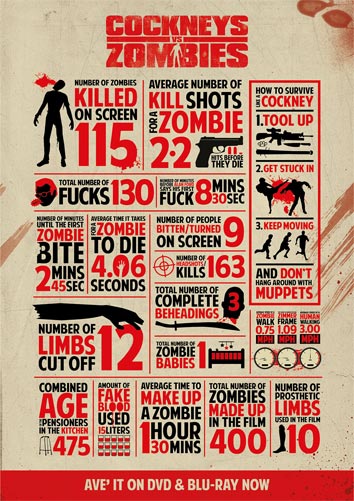
Cockneys vs. Zombies (United Kingdom)
Directed by Matthias Hoene
In Cockneys vs. Zombies, a group finds themselves holed up in an East London nursing home with nowhere to go. The similarities to Shaun of the Dead are easy to make, because both films are zombie-comedies taking place in England… but while Cockneys vs. Zombies is nowhere near as good as its predecessor, its cracks at football hooligans and zombie-walking speeds make for some hilarious television, and something worth adding to the repertoire of zombie aficionados everywhere. – Peter Woodburn
June 8th, 2013 – 11:55pm @ The Egyptian Theatre
June 9th, 2013 – 8:30pm @ The Kirkland Performance Center
The Cleaner – El Limpiador (Peru)
Directed by Adrian Saba
The Cleaner features fantastic performances, in the story of a forensic cleaner Eusebio (Victor Prada) who stumbles across an eight-year-old boy Joaquin (Adrian Du Bois) with nowhere to go. Set in Peru as a mysterious epidemic has people dropping like flies, Eusebio goes about his daily routine of cleaning up after those who have perished, while building a life-long connection with someone he doesn’t even want around in the first place. Director Adrian Saba uses restraint perfectly in the film and lets Prada and Du Bois do all the hard work. The setting, although a powerful idea, is just that — a setting. The real heart of the story is the power of hope to shine through in dystopian times. – Peter Woodburn
June 5, 2013 – 9:30PM – AMC Pacific Place 11
June 7, 2013 – 4:30PM – Harvard Exit Theater
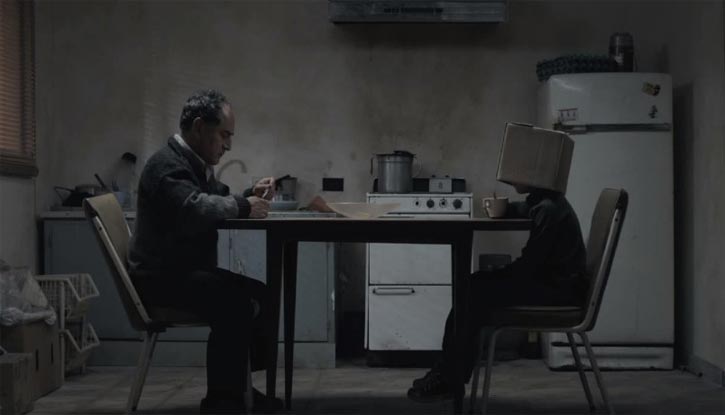
Computer Chess (United States)
Directed by Andrew Bujalski
* HORRENDOUS PICK *
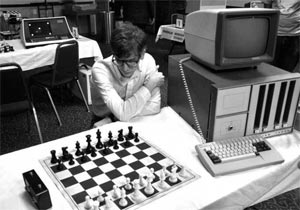
“An abysmal effort in attempting to bring meaning to style, Computer Chess goes no further than a tedious exercise in stretching (bad) ideas until they tear. The film’s major selling point is that it was filmed using ancient video cameras, documentary style, in order to capture the spirit of the wild frontier of technology in the late seventies. But spirit seems to be the farthest thing from the filmmakers’ minds in this case; instead, C-grade characters with B-grade potential are burdened with a D-minus concept. And we’re given the raw result.” – Allen Huang
Read full review of Computer Chess.
The Deep – Djúpið (Iceland)
Directed by Baltasar Kormákur
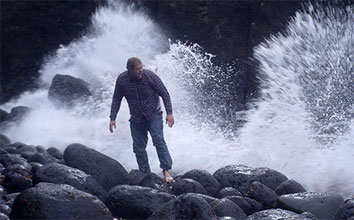
A gruesome tale of survival with a little weird science wrapped around it for good measure. The Deep tells the story of Gulli, a blue-collar Icelandic fisherman whose ship sinks in the frigid Arctic. Amazingly, he is able to swim to shore. But even after walking barefoot over volcanic glass only to arrive 99.9% dead at a stranger’s doorstep, his trials do not end, with scientists from all over the world asking themselves how this is even possible. The film was shot in the actual Arctic, and the effects are shockingly real and horrifying. Clips of real footage during the credits serve to enhance the impact of the story. – Allen Huang
Fatal (South Korea)
Directed by Dong-Ku Lee
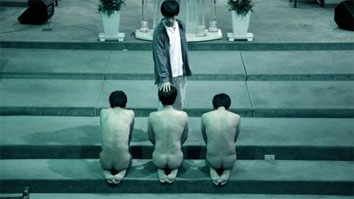
Lee Dong-Ku’s dramatic indie takes its cues from his fellow Korean filmmakers, specifically Park Chan-Wook and Bong Joon-Ho. A psychologically twisted tale of revenge finds disorienting psychosis and all-consuming guilt living hand-in-hand. The most unique parts of the film are when Sung-Gong’s rampant daydreaming gets the better of him in some truly absurd segments — but like in many Korean films, reality rears its ugly head as vengeance is brutally extracted. Those looking for some twisted revenge porn will find some tantalizing nuggets here, but those looking for a truly unique voice in Korean cinema will be disappointed. – Allen Huang
A Hijacking — Kapringen (Denmark)
Directed by Tobias Lindholm
* TOP PICK *
A Hijacking is a Danish drama set primarily in two locations: aboard a small ship that has been hijacked by Somali pirates, and in an extremely sterile, white-walled office in Copenhagen. Though the film never stretches outside of these narrow confines, its human-centered drama is consistently compelling in its ability to show that any human being is capable of dynamism when placed in bizarre and challenging situations, whether he is a pirate or a money-hungry businessman. It’s a slow, tense psychological thriller, where communication between negotiating parties plays out slowly and unpredictably via phone and fax, over the course of more than 150 days. Most of these are bleak, though moments of interpersonal human communication and joy over simple life victories do lighten the mood on occasion. A Hiajcking ends with silent credits — no music; no flair; not even stylized color or text — and the weight of the film’s realism becomes ever-pronounced when the entire audience is left in silence, pondering not necessarily over the meaning of life, but on the variability of human nature in critical moments, the lack of predictability of fate and reaction. – Vivian Hua
May 31, 2013 – 1:30pm – AMC Pacific Place 11
The Forgotten Kingdom (United States, South Africa)
Directed by Andrew Mudge
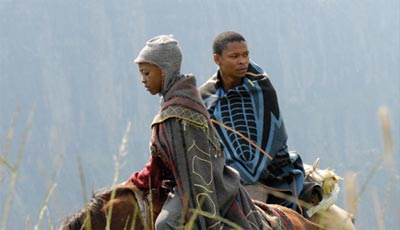 Split equally between Johannesburg, South Africa, and Lesotho, a mountainous region land-locked on all sides by South Africa — The Forgotten Kingdom is a journey film about Atang, a young man who surprisingly discovers himself after the sudden death of his estranged father. And it soon becomes a tale of love, as he travels over wide expanses to seek out his childhood friend Dineo, after running away from her father’s request that he take her as a bride. Visually, The Forgotten Kingdom is impeccable, each shot an unfolding natural dream that makes one want to travel to Lesotho to see its beauty in person. The narrative, however, though enchanting when it becomes whimsical and dream-like, often also feels unbearably sentimental and cheesy, even complete with bad music. Characters and situations pop up along Atang’s journey that help him, often passively, come more fully into realizing himself through reminding him that he is the man he is because of his father. Many of the film’s ideas are fantastic at a macro level and on paper, but when executed, often come on too hastily, making the entire film seem rather fragmented as it transitions in and out of scenes seemingly with little rhyme or reason. In the end, the journey itself only feels important because of its end goal and result — hardly because of the journey itself. – Vivian Hua
Split equally between Johannesburg, South Africa, and Lesotho, a mountainous region land-locked on all sides by South Africa — The Forgotten Kingdom is a journey film about Atang, a young man who surprisingly discovers himself after the sudden death of his estranged father. And it soon becomes a tale of love, as he travels over wide expanses to seek out his childhood friend Dineo, after running away from her father’s request that he take her as a bride. Visually, The Forgotten Kingdom is impeccable, each shot an unfolding natural dream that makes one want to travel to Lesotho to see its beauty in person. The narrative, however, though enchanting when it becomes whimsical and dream-like, often also feels unbearably sentimental and cheesy, even complete with bad music. Characters and situations pop up along Atang’s journey that help him, often passively, come more fully into realizing himself through reminding him that he is the man he is because of his father. Many of the film’s ideas are fantastic at a macro level and on paper, but when executed, often come on too hastily, making the entire film seem rather fragmented as it transitions in and out of scenes seemingly with little rhyme or reason. In the end, the journey itself only feels important because of its end goal and result — hardly because of the journey itself. – Vivian Hua
June 5, 2013 – 9:00pm – SIFF Cinema Uptown
The Fruit Hunters
 Directed by Yung Chang
Directed by Yung Chang
Remember that episode of the Simpsons where Homer goes to the candy convention and the dude with the weird accent keeps talking about the Gummy de Milo, and then Marge comes in and says, “Could you stop saying the word Gummy?” Well this film is like that, except replace accented-dude with Bill Pullman and “gummy” with “fruit”. – Allen Huang
Jin (Turkey)
Directed by Reha Erdem
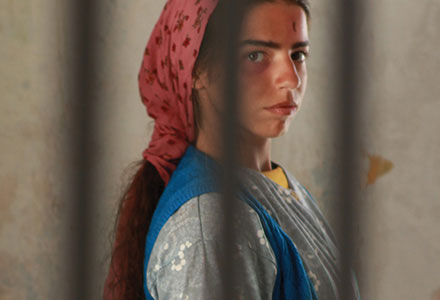
Turkish director Reha Erdem brings a touch of surrealism and a dollop of anti-war sentiment to his latest film, Jin. The film follows a young female Kurdish freedom fighter, as she swaps her uniform for peasant clothing in order to get medicine for her ailing grandmother. The film is punctuated by shots of jungle wildlife and the sound of gunfire and airplanes. Her interactions with other people are feral and tragic, finding some solidarity with other women and only receiving abuse both physical and sexual from the men. The splits between soldier/civilian and city/nature are emphasized, and thus the film takes on a sort of Lars Von Trier tone. But instead of detesting America, Erdem laments the human condition entirely. – Allen Huang
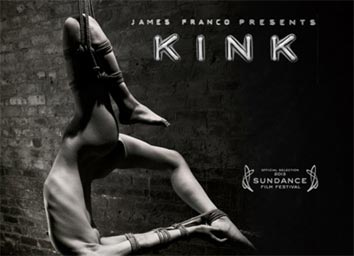
Kink (United States)
Directed by Christina Voros
Kink is definitely not the most well-crafted documentary — its interviews are often fairly scattered and become repetitive towards the end — but is definitely fascinating in its reveal of a not oft-considered subculture, as it offers explicit industry-specific sex scenes and dives into the reasons people become involved. In short: it’s not life-changing, but it is interesting. – Vivian Hua
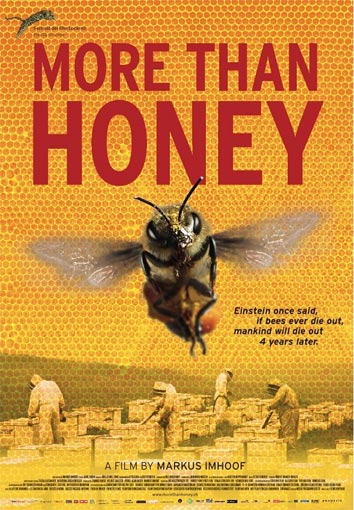
More Than Honey (Germany)
Directed by Markus Imhoof
There has been wide speculation about the causes behind the global disappearance of bees, and More Than Honey attempts to explain the mystery through a series of interviews with people from around the world — specifically, in the United States, China, Switzerland, and Australia — who have intimate relationships with bees through farming, honey production, and biological study. Like most nature documentaries, there is a bit of a moral tale to be told, of mankind’s cruel treatment of the environment and of bees, in exchange for goods and money and so on; but there are also solutions presented, although they are admittedly bleak. More Than Honey is an informative documentary with some truly stunning and detailed shots of bees at work and in flight. – Vivian Hua
Moon Man – Mondmann (Germany)
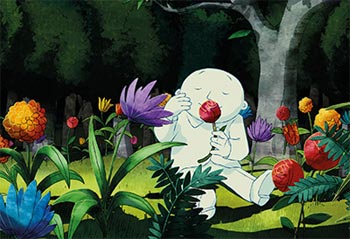 Directed by Stephan Schesch
Directed by Stephan Schesch
* HORRENDOUS PICK *
Call me a hateful old man, but this film straight-up stinks. Moon Man looks like it was drawn by 400 drunk children in separate rooms, sounds like it was written by an alien caveman, and has the budget of your favorite elementary school drug abuse educational video. Any rambunctious charm the film attempts to conjure is instantly derailed by just how enthralled the film is with itself. – Allen Huang
Northwest – Nordvest (Denmark)
Directed by Michael Noer
* TOP PICK *
“Michael Noer is a gritty realist, concerned with the unstoppable inertia of the city. Crossing back and forth between documentary and fiction, Noer sees no line between the constructed plots of his films and the real-life social fissures in Danish society. His depictions of the malfunctioning systems that entrap youth into a life of crime and poverty are starkly grounded in reality, which makes the characters in his films all the more believable and tragic.” – ALLEN HUANG
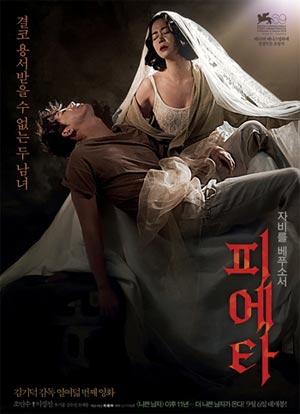
Pieta –피에타 (South Korea)
Directed by Kim Ki-Duk
Like hanging out with an old friend, Pieta finds Kim Ki-Duk up to his same ol’, “I hate humanity” tricks. Upgrades are: digitally shot, handheld camera, surrealistic urban setting (literally everyone works in a dank mini-factory where they make only one thing), wonderfully insane mother-son montage in the middle. But in addition to being a sadistic exercise in revenge (see: Vengeance Trilogy), Pieta actually makes some interesting peripheral statements on the modernization of Korea and the increasing disenfranchisement of the middle-class. I can’t remember the last KKD movie with multiple points. – Allen Huang
The Fifth Season – La Cinquième Saison (Belgium)
Directed by Jessica Woodworth and Peter Brosens
As directors Peter Brosens and Jessica Hope Woodworth tell the story of a small village in Belgium that becomes stuck in a perpetual winter, they become get lost under the weight of a potentially good idea. There are some amazing cinematographic shots throughout the film, but they unfortunately aren’t enough to really keep up one’s interest, as the directing duo’s approach to the film is to let the pictures tell the story instead of the focusing on the story itself. As the town crumbles into mad terror, crops die and people starve, but it is hard to be sympathetic to anyone because the dialogue is so sparse; these are less human beings and more just moving figures. A few scenes appear, almost as art for the sake of art, and whatever metaphor was supposed to be hammered home becomes more an annoyance than anything as the film comes to a close. – Peter Woodburn
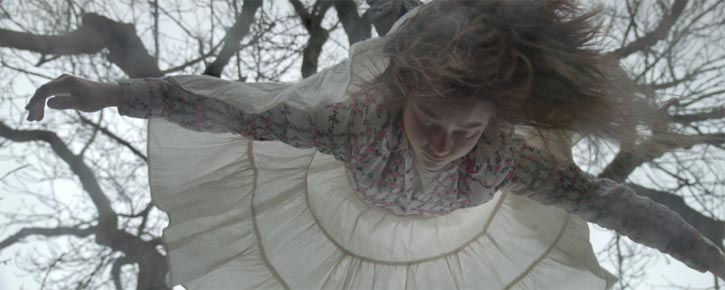
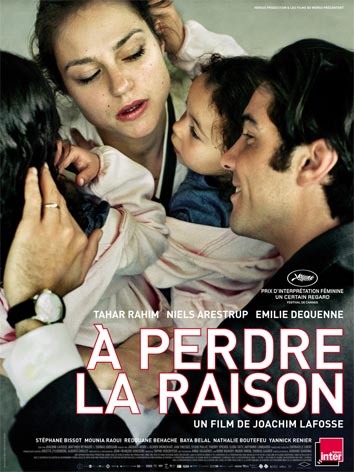
Our Children – À perdre la raison (Belgium)
Directed by Joachim Lafosse
Naivete and young love turn from blissful to tragic — perhaps overly so — in this film about cultural-familial pressures which lead to a breakdown in communication. Hopelessness abounds in this film; the problem is that the limitations the main characters put on themselves aren’t always well-expressed enough to be believable. – Vivian Hua
Read full review of Our Children.
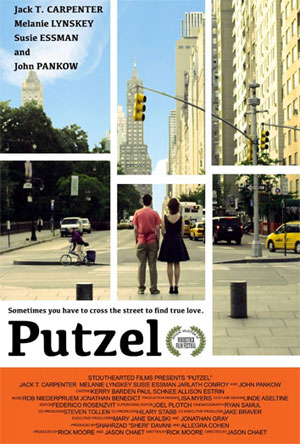
Putzel (United States)
Directed by Jason Chaet
Putzel is the latest in a long line of “being awkward and Jewish in NYC” coming of age films. This film hits all its marks, with a very NYC premise (about an heir to a upper west side lox-monger empire) and a classic set of core values/conflicts (marriage, family dysfunction, honoring the family name, being free). There’s a path being followed here, blazed by a million-and-one American filmmakers, and thankfully director Jason Chaet doesn’t miss any of his turns. Jack Carpenter, who plays protagonist Walter Hmmelstein, and Melanie Lynskey, as the leading lady Sally, are a delightful couple whose uncomfortable interactions are deftly believable. And I guess that sums up the film in a nutshell: acceptable, believable. – Allen Huang
Stuck in Love (United States)
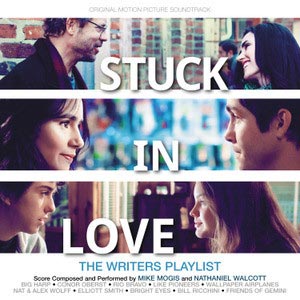 Directed by Josh Boone
Directed by Josh Boone
* HORRENDOUS PICK *
Is there such thing as a director’s anti-touch? Greg Kinnear and Jennifer Connelly participate in a drudge of a film, which feels like it was written in 2001 and cribs awkwardly from films like Wonder Boys and Can’t Hardly Wait. Oh no! Coke! Oh no! A drinking problem! (She drank two glasses of champagne then did a line of coke.) References to Elliot Smith and Fevers and Mirrors and physical media abound. 2012 is confused. – Allen Huang
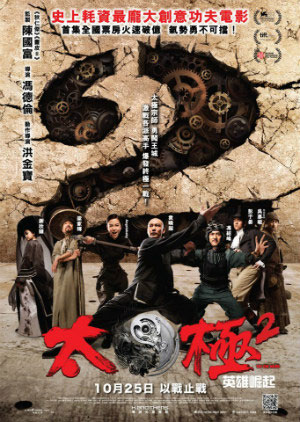
Tai Chi Hero (China)
Directed by Stephen Fung
China is making movies specifically geared at the Midnight Madness crowd it seems. Tai Chi Hero is the sequel to Wushu-Taichi chop-socky comedy Tai Chi Zero. It involves strange, Confucian comedy, steampunk (like Wild Wild West steampunk) mechanical designs, and an outdated, nu-metal soundtrack. The legendary Sammo Hung did the fight choreography, so all of that stuff is great. But the film panders heavily, not really having any fun with it but rather trying to hit all the wacky schlockphile “notes” so that cult-junkies will have something to talk about over brunch the next morning. – Allen Huang
Two Weddings and a Funeral – 두 번의 결혼식과 한 번의 장례식 (South Korea)
 Directed by Kim Jo Kwang-Soo
Directed by Kim Jo Kwang-Soo
I can’t tell if this movie is incredibly progressive or incredibly regressive. The gay caricatures are a step back. The handling of gay relationships (between non-caricature types) are actually pretty mature. There are some deft jokes that don’t resort to, “LOL, he’s gay” as the punchline. And the film works as both a character study and a, “We’re here; we’re queer,” statement to the socially-conservative Korean status quo. I guess, a net positive all around. – Allen Huang
The Wall – Die Wand (Austria)
Directed by Julian Roman Pölsler
* HORRENDOUS PICK *
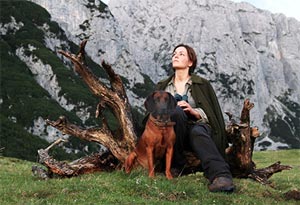 The Wall centers primarily around one main character, a woman who wakes up one day to find that she cannot move beyond an invisible perimeter that extends outwards from her home. While there is the occasional fascinating detail — she can see a couple beyond the wall but can’t touch them and presumes them dead; she tracks how far she can travel from her home before nightfall — these rare moments are bogged down by far too much horrible amateur narration and kindergarten poetry, and the film’s use of a dynamic range of emotion is practically non-existent. Not at all recommended, unless you want something to complain about, for this is one of the worst films I have seen in a long time. It’s based on the novel by Marlen Haushofer, which I can only hope is far superior to this; but if in fact the words were taken verbatim from the novel, director Julian Roman Pölsler should definitely have chosen better source material. – Vivian Hua
The Wall centers primarily around one main character, a woman who wakes up one day to find that she cannot move beyond an invisible perimeter that extends outwards from her home. While there is the occasional fascinating detail — she can see a couple beyond the wall but can’t touch them and presumes them dead; she tracks how far she can travel from her home before nightfall — these rare moments are bogged down by far too much horrible amateur narration and kindergarten poetry, and the film’s use of a dynamic range of emotion is practically non-existent. Not at all recommended, unless you want something to complain about, for this is one of the worst films I have seen in a long time. It’s based on the novel by Marlen Haushofer, which I can only hope is far superior to this; but if in fact the words were taken verbatim from the novel, director Julian Roman Pölsler should definitely have chosen better source material. – Vivian Hua
Wolf Children – おおかみこどもの雨と雪 (Japan)
Directed by Mamoru Hosoda
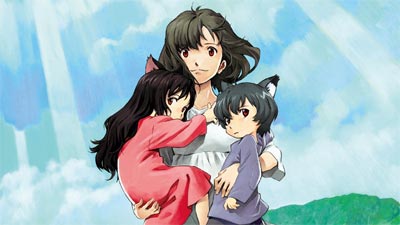 Mamoru Hosoda’s quietest film is a tribute to strong mothers everywhere. Wolf Children is less about the fantasy of being a Halfling as much as it is the struggle of raising children through their awkward adolescences. Hana is the anchor of the film, the emotional focus and the sole multi-faceted character. Given the film’s pinpoint focus, the scope seems much smaller than that of Hosoda’s Summer Wars or The Girl Who Leapt Through Time, giving the impression that this is the least accomplished. But with all the off-beat comedic notes and the periods of ambient meditation that are Hosoda’s hallmarks, Wolf Children holds up to his other works. – Allen Huang
Mamoru Hosoda’s quietest film is a tribute to strong mothers everywhere. Wolf Children is less about the fantasy of being a Halfling as much as it is the struggle of raising children through their awkward adolescences. Hana is the anchor of the film, the emotional focus and the sole multi-faceted character. Given the film’s pinpoint focus, the scope seems much smaller than that of Hosoda’s Summer Wars or The Girl Who Leapt Through Time, giving the impression that this is the least accomplished. But with all the off-beat comedic notes and the periods of ambient meditation that are Hosoda’s hallmarks, Wolf Children holds up to his other works. – Allen Huang
Ω







